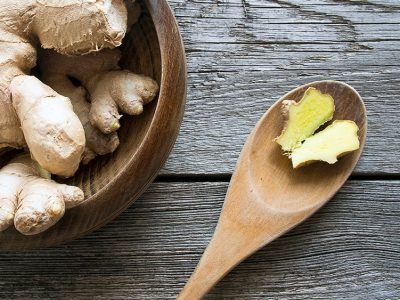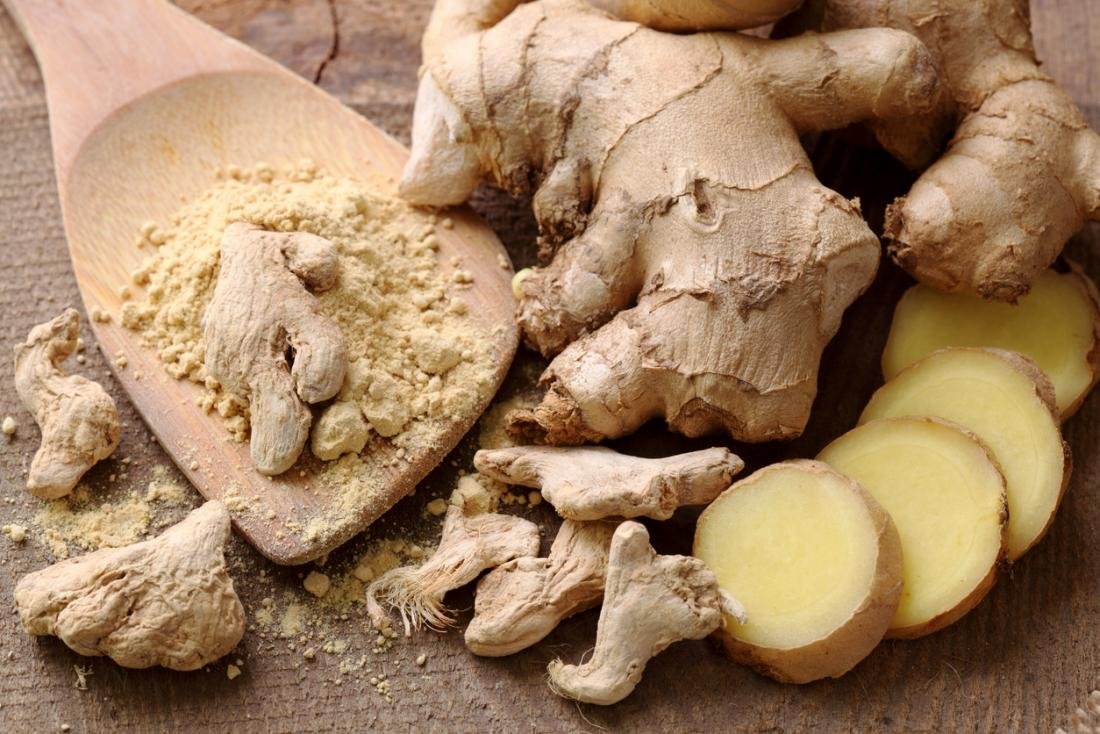Although you probably know ginger best as a stomach soother, it may also help you feel fuller and even burn more calories, as per several researches. Indeed, ginger is a delicious spice that offers a great way to turn up the flavor in your diet! People have used ginger in cooking and medicine since ancient times. Ginger is found to have anti-inflammatory, antibacterial, antiviral, and other healthful properties.
Whether you want to use it in your cooked meals, drink it as a tea, or press it into fresh juice, you’ll be able to reap all the amazing health benefits of ginger. However, when you’re picking out your pieces of ginger root, make sure they are firm to the touch, and look out for discolorations or soft spots. Also, the bigger the piece of ginger, the older it is and the more pungent its flavor will be!
Some key health benefits of Ginger:
Calm that upset stomach:
No one likes feeling queasy. Ginger has long been revered as a natural remedy for upset stomachs, especially by pregnant women suffering from morning sickness. Ginger candies, natural ginger ale, and ginger tea are easy ways to get ginger into your system when you’re feeling a little green.
Soothe sore muscles:
Again, ginger’s anti-inflammatory effect can be of great benefit to someone dealing with soreness. Recent studies have shown ginger to may help with muscle soreness. Try taking a bath with ginger and Epsom salts.

Ginger boosts digestion:
That yucky feeling you get when you eat too much (or eat something that just doesn’t sit right)? Ginger can help make it go away faster. It’s long been used as an aid to improve digestion. “Ginger has both antiemetic and carminative functions, which aid in the breakdown of gas and support bowel movements,”
Ginger eases nausea and motion sickness:
The same properties that support digestion can also help soothe a sour stomach. Research also shows that ginger can help ease motion sickness, as well as provide nausea relief for patients after surgery and for cancer patients undergoing chemotherapy.
That’s not all. Ginger’s nausea-fighting ability has been found to help pregnant women dealing with morning sickness too.
Ginger can help fight infection and Clear your congestion:
Can ginger offer cold relief or flu relief? It might. “Laboratory research suggests ginger extract and ginger essential oils have antimicrobial effects against a range of organisms,”
Ginger can help with stuffed up sinuses and also soothe sore throats, thanks to its anti-inflammatory properties and antibacterial abilities. That ability to fight viruses and bacteria could fortify your immune system against nasty bugs.
Ginger can help ease joint and muscle pain.
Whether you’re dealing with post-workout discomfort or something more serious, this powerful plant can help. It’s also been shown to help relieve knee discomfort caused by osteoarthritis.
But instead of treating ginger as nature’s medicine, think of it more like a multivitamin. Since the root’s effects seem to be cumulative, you’ll reap bigger benefits for reduced joint and muscle pain by taking it daily.
Ginger can help ease period pain.
If cramping is par for the course during your period, ginger might be for you. A clinical trial found that women who took ginger capsules daily from the start of their periods experienced less abdominal cramping and discomfort. In fact, the ginger capsules turned out to be just as effective as over-the-counter meds like ibuprofen.
Ginger can help lower your risk for chronic diseases.
Ginger’s ability to fight inflammation means that it can play a role in preventing a number of chronic health problems. At the top of the list? Heart disease. Consuming ginger powder daily for 45 days has been shown to significantly lower cholesterol and triglycerides. It also slashes markers for oxidized lipoproteins—fatty deposits that can cause arteries to get stiff and clogged, research has found.
Findings also suggest that ginger’s antioxidant effects could play a role in protecting the brain against cognitive decline (like Alzheimer’s disease) and potentially fight certain cancers, including pancreatic, breast, ovarian, and colorectal cancer.
Ginger promotes healthy blood sugar levels.
Ginger seems to promote healthy fat and glucose metabolism as well as provide support for insulin sensitivity, Miller says. And all of those things can have a positive effect on blood sugars.
May Improve Brain Function
As we’ve seen in the past, oxidative stress and chronic inflammation can have a negative effect on cognitive function and can accelerate the brain’s aging process. These factors are believed to be linked to Alzheimer’s disease and age-related cognitive decline. One study indicates that the antioxidants and bioactive compounds in ginger reduce inflammation that occurs in the brain. There is also evidence that ginger can enhance brain function directly.

What are the side effects of ginger?
Ginger is generally considered safe, so consuming a moderate amount every day. Still, even small amounts of ginger might be a bad idea if you’re on certain medications or have health issues. Ginger might interact with blood thinners, and it could also increase the flow of bile, which could be bad for people with gallstone disease. And if you have heartburn or a sensitive stomach? Since ginger packs a spicy punch, you might also want to steer clear.
Your best bet? Play it safe. If you’re thinking about taking ginger therapeutically, talk with your doctor first to make sure it’s the right move for you.
And since ginger’s benefits seem to be cumulative, try making it a regular part of your daily diet instead of just having it once in a while.

